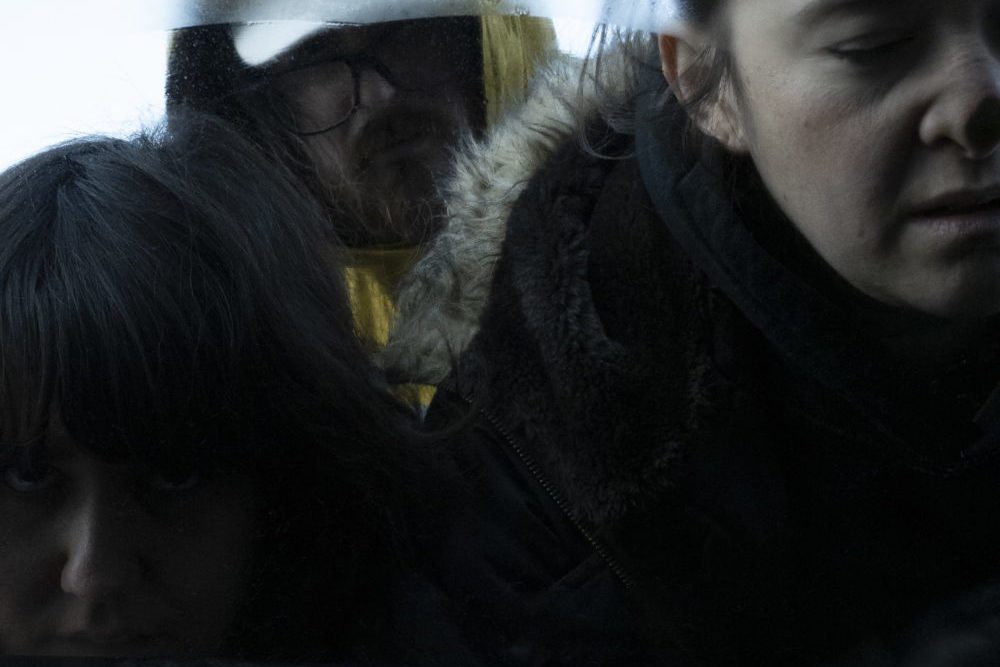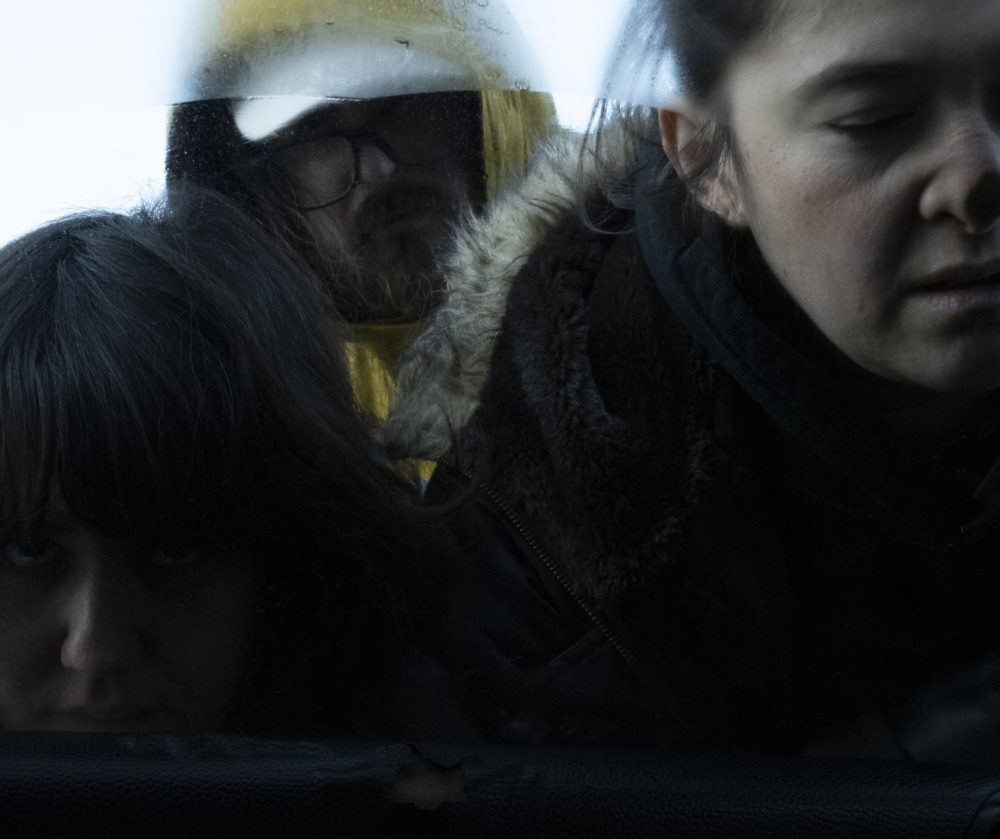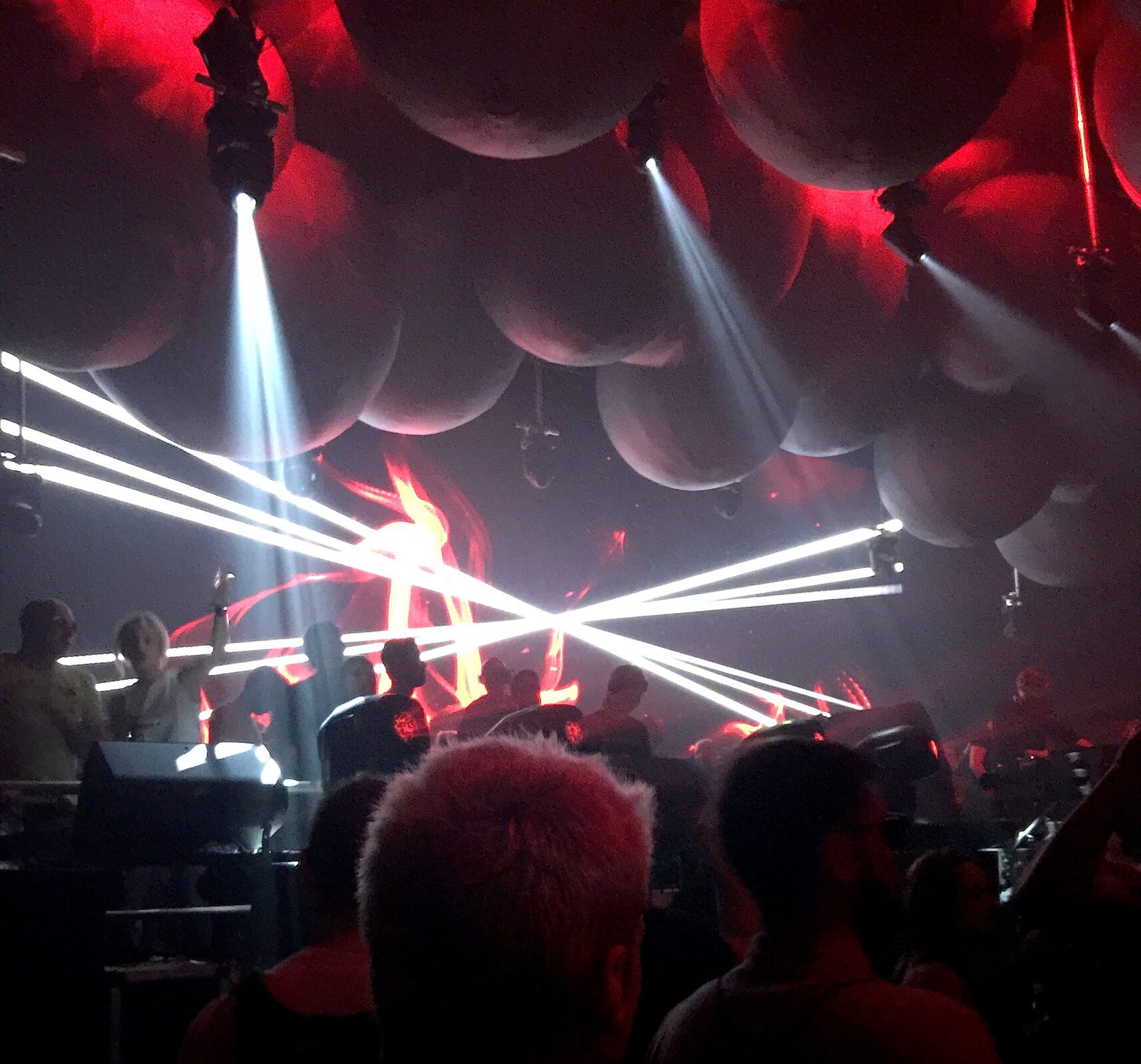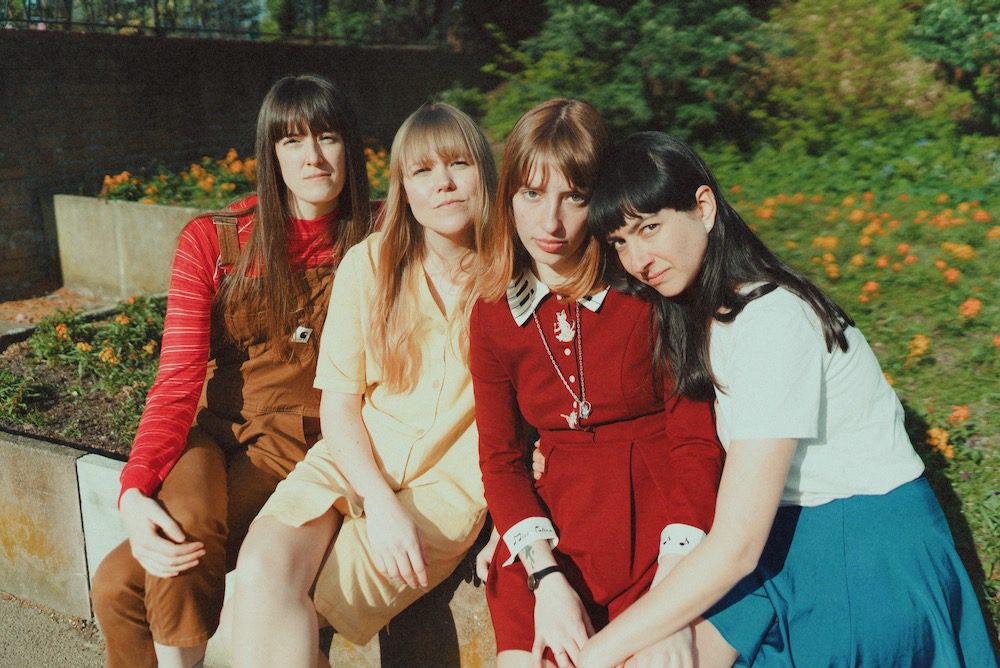New Fries’ ‘Is The Idea Of Us’ LP Is the Anti-Music the World Needs


During the early days of Toronto-based experimental group New Fries, they were stumped about what to call the band. “Each time we played a show, we had a different name,” singer Anni Spadafora remembers. Then, as they were driving, they passed a mangled Burger King sign where only the words “New Fries” were visible, and for lack of better options, that became the band name. “Now, I’ve had to live with this terrible band name almost 10 years later,” Spadafora laughs.
This naming process captures the ethos of New Fries, which is built around challenging pretentious notions about what good music is and who’s entitled to make music. In fact, the band “began kind of as a joke, to be honest,” says Spadafora. When she and her bandmate, drummer Jenny Gitman, started collaborating, they’d never played music before, aside from their own private “fooling around.”
“We didn’t really know how to play our instruments, but it was kind of this really open and transformative space,” she recounts. “It’s been a bunch of friends making music, but because we’re not really musicians, we’re not really interested in traditional songwriting.” Sometimes, during live performances, they’ll even abruptly stop playing and stand in silence in the middle of a song.
Their latest album, Is The Idea Of Us, gives a sound to this philosophy — and is also named in accordance with it. “It was very classic New Fries — we couldn’t decide on a title,” says Spadafora. The title they came up with ultimately reflected the uncertainty that characterizes the band, especially at the time they recorded it, which was during a transition in the membership. After Ryan Carley (synthesizer) left in 2018, the remaining members reshuffled, with Spadafora (formerly on guitar) taking up the bass, Tim Fagan (formerly on bass) getting on the guitar and sampler, and Gitman cutting her drum kit down to three pieces. This way, even after eight years playing together as a band, the members got to be beginners.
“It was almost like this recommitting to being that way and not being seduced by, ‘Oh, we just have to get better at playing or get better at creating this career as a band,'” says Spadafora. “We wanted to kind of recommit to the punk, recommit to being messy non-players, to being open. We’re not trying to win anything; it’s just about experimenting.”
Appropriately, the thirteen songs on the album each buck musical conventions in their own ways. The opening track, “Bangs,” sounds almost like a PSA over a loudspeaker, with siren-like noises over a bass track that speeds up and up as the song goes on. The chaotic sound of “Genre I” evokes the feeling of a crowded subway station, lasting only 28 seconds. And “Ploce,” a single named after Fagan’s late fish, gives off an ’80s dance vibe, with sassy spoken word echoing through the composition before it cuts off abruptly in the middle of a sentence.
The music for the album was written first, then Spadafora was charged with writing the lyrics, which she decided would reflect the overall theme of in-between spaces. “Lily” is about her grandfather’s life as a medium in Lily Dale, New York, referencing the town’s distinctively large population of mediums, as well as its history as a home for suffragists. “This song is about naming that personal history and also questioning its validity,” says Spadafora. “Was he a liar? Was he a saint?”
Another song, “Mt. Tambora,” is about the volcano’s eruption in 1815, which precipitated the following “year without a summer” by reducing global temperatures. After learning that Mary Shelley wrote Frankenstein in 1816, Spadafora was inspired by the idea that creativity blossoms in transition, much like her own band’s. The band intentionally used lots of repetition in the music and lyrics in order to create a feeling of anxiety that characterizes this sense of in-between-ness.
There isn’t any cohesive message Spadafora wants listeners to gain from the album; to the contrary, she hopes it helps them let go of their minds, of the impulse to make sense of things, for a moment — that it invites them into the realm of nonsense, randomness, and chaos that shaped the album and the band itself.
“For me, the spirit of punk music or noise or weirdo music is meant to kind of pull us out of the complacence of our lives,” she says. “The world is often so confusing and demands that we behave in a particular way. To me, these sorts of music worlds feel like this opportunity to be something different, to behave differently from the world, in the sense that I can be really aggressive and ugly and kind of grotesque with my body when I’m performing on stage. There’s literally nowhere else in the world where I can behave that way, and to me, that’s really utopic and inspiring and exciting. There are these opportunities to kind of be a different world.”
Follow New Fries on Facebook for ongoing updates.




